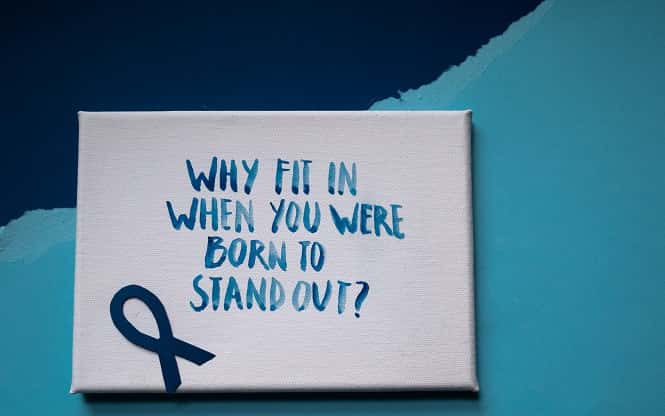Worst Jobs for Autistic Adults and Aspergers – Top 9 in 2024

Autism, (note that: Aspergers do not have early delays in developing language), is considered a developmental disorder that impairs the ability of effective social interaction and communication.
Autistic adults / Aspergers are known to exhibit repetitive behaviors, restricted interests and routines, and non-verbal communications.
Autism / Aspergers can last for years or even a lifetime and is best detected in early childhood through a medical diagnosis.
Autistic Adults suffering from Asperger’s syndrome exhibit extreme behaviors such as aggression and impulsivity, mood swings ranging from anger, anxiety or apprehension to depression, and muscular discomforts.
People with Aspergers / Autism may be able to earn a living but there are jobs that aren’t the best fit for them.
There are many studies and autism and employment statistics that suggest that having ASD can impact businesses in many positive ways.
We invite you to have a look at the jobs for people with disabilities to find and apply to careers that fit your needs. Not sure what to do yet? We also listed the best jobs for autistic adults and people with Aspergers.
1. Salesperson

Salesperson is the first on our list of the worst jobs for autistic adults and Aspergers. The job of a salesperson is to sell a product or service that can potentially help customers.
Some of the skills needed to be a good salesperson include:
- building long-term relationships ;
- being a good listener ;
- managing time well ;
- and collaboration.
People who work in sales are generally sociable. Most adults with autism have challenges being sociable.
Relationship-building in sales requires:
- trust ;
- rapport ;
- and the desire to help others.
These skills skill is sometimes hard for autistic people to show.
Autistic workers genuinely listen, but it takes time for them to process what is being said. Along with analyzing data about sales, critical thinking skills are necessary to process the right information and formulate solutions for problems.
Often sticking to rigid routines, those on the autism spectrum prefer to stay on schedules they are familiar with. The ability to optimize time improves the productivity of a salesperson, as well as creating better cost-efficiency.
2. Politician
Decoding many motives that are sometimes conflicting and oftentimes hidden is at the heart of a politician’s job. Along with having emotional strength, politicians must be quick on their feet to juggle various irrational concepts and ideas.
People with autism often stick to rigid routines and don’t always make immediate changes that could potentially take them out of their comfort zone.
A politician is often seen as a “Jack of All Trades” type of worker.
For example: if one runs for a position such as city mayor, he or she will be required to keep a pulse on what is happening in all parts of that city’s activities. This includes economic, environmental, and scientific issues. Using this example, multitasking can be difficult for those on the autism spectrum.
Also, most politicians are visible figures in their communities. If you hold a position like city mayor, you will be expected to hold media press conferences at least occasionally. Autistic people are generally shy and prefer not to be in the limelight.
3. Food Server

If you work at a restaurant as a food server, it will be your responsibility to take care of many customers at once, all of which will have different needs.
Having a short-term memory to keep track of orders and requests from multiple tables simultaneously is one key trait to have in being a good food server. People with autism may find this challenging, with there being a possibility of sensory overload.
Working as a food server can be a highly stressful job, wearing one down mentally and emotionally. Speaking from experience, I once worked as a food server for a few months as a trial job.
At first, reading the orders made by customers was not so hard, but after a few hours into the shift, I noticed confusion started setting in. I would accidentally serve the wrong food to the wrong customers.
When working as a food server, one needs strong memorization skills.
Not everyone on the autism spectrum has this issue, but in my case, it quickly became a mental juggling act when memorizing all the different orders made by the restaurant’s customers.
4. Military Service

Serving in the military is not just a physically demanding job, but also emotionally demanding, which leads to more opportunities for sensory overload. Working any job for the United States military will put one in a strict environment where immediate results are required.
One example of a harsh military occupation is that of a special reconnaissance commando. You will deliberately take on the harshest available conditions attempting to surprise the enemy, whether in the extreme heat or the intense cold.
Another example is being a commander of a group. Being mentally wired differently, people on the autism spectrum often have difficulty understanding the “honor shame culture” that comes with the military environment.
Depending on the military branch, there are certain policies in place that may prevent from autistic people from joining. The Army and Navy have lenient to moderate policies, whereas the Air Force, Marine Corps and Coast Guard have stricter policies.
5. Healthcare Worker

Healthcare workers are one of the professionals working under the most strenuous conditions. Be it orthopedics, nurses, doctors, or surgeons, the stress of the job can be very exhaustive.
Healthcare professionals often work long hours during the day to complete tasks, which is one main factor of why their job is stressful.
Depending on the extent of their cognitive abilities, autistic workers can get easily stressed.
Healthcare workers in the emergency sections suffer the worst burn-out with the constant influx of emergency situations in the wards and dealing with different patients with different urgent health needs.
Some of the most traumatic scenes can develop in the emergency sections (one example is surgery on a broken bone), which can be viewed by autistic people as being too intense.
The training process in becoming a healthcare worker is stressful. It requires multiple hours a day, and ultimately multiple years of educational training to secure a high position in a hospital. There is a lot to account for in the medical field, and the possibility of an autistic trainee experiencing sensory overload is strong.
6. Teacher

Teachers are required to be expressive, articulate, and communicate effectively with their pupils and students. In the lower grades, a lot of patience is demanded in order to ensure a proper understanding of what is being taught by the teacher.
Depending on what types of students the teacher receives in the lower grades (examples: quiet and reserved, overexcited and hyper), the teacher will use a lot of energy to establish effective communication.
Also, teachers are known to be quick-thinking and responsive to their students’ questions and issues. Short-term memory is highly required to enable teachers to identify each student with his/her particulars and academic demands.
Teaching is not a profession where one waits to see what happens. Teaching in school is a position of authority, which means you have to take action as soon as possible when questions and issues arise.
Teaching is a sociable profession. As a teacher, you need to socialize with your students as one way to get familiar with them.
No matter what grade you teach in, you will need to develop an understanding of what your students’ tendencies are like and how you can help them improve in the classroom. Autistic adults / Aspergers are generally shy and have initial challenges being sociable.
7. Customer Service Agent
Whether working remotely via online or phone, or in a physical setting like a dollar store, customer service is a regular component of many businesses.
As someone with autism, from my experiences stocking shelves and cleaning up aisles in a store I used to work for, I would often be interrupted by customers asking me simple questions about where to locate certain items.
Some customers were pleasant to have conversations with, and others were not. One reason for this was because I sometimes could not process what they were trying to say.
Customers who are confrontational (shouting or use of vulgarity) can sometimes discourage autistic workers. As a former store employee, whenever I heard a customer raise his or her voice in conversations with me, it would cause me to freeze and have a blank reaction to their hostility.
That was not because I didn’t care about the situation, but because I was having difficulty understanding why the customer was being so hostile.
This is why Customer Service Agent has been enlisted in our list of worst jobs for autistic adults.
8. Sportsman / Fitness Coach
Sportsmen & Fitness Coach undergo rigorous training regimens, strict diet schedules, exhaustive physical activities, nerve-racking pressure to perform well, coupled with the regular stress of daily living.
There are different sports with varying strenuous demands. Almost every sports profession including weight lifting, American football, rugby, swimming, track and field, football, basketball, volleyball and many more are too tedious and stressful for Autistic people.
People with Autism / Aspergers suffer from poor coordination and fidgeting which would make it hard for them to survive in any sports profession. They are also known to be sensitive to sound and very irritable. As such, a profession with so much noise and crowd like sportsmen is one of the worst jobs for Aspergers.
9. Receptionist

The job of a receptionist requires a lot of soft skills and to be sociable, something some people with Autism / Aspergers might not have. The requisite soft skills to be a receptionist include organizational skills, interpersonal skills, multi-tasking skills, confidence, and much more. A receptionist must be interactive, jovial, accommodating and friendly.
They also work in fast-paced environments and endure the stress of dealing with the traffic of clients and customers. Such stress can trigger people with Aspergers / Autism to exhibit anger, anxiety or apprehension.
Likewise, the ability of adults with Autism to self-isolate and exhibit restricted behavior makes receptionist one of the worst jobs for Autistic adults.
Conclusion
With proper attention and care, Autistic adults can earn a living while working a job they love and appreciate. However, Autistic / Aspergers are unfit for some jobs. It’s advisable for them to stay away from such jobs in order to ensure their healthy living and focus on the best jobs for autistic adults.


I did vry well as a Substitute Teacher & get a great thrill as an Instructor in many WrkShops & Panels. I really miss the Students!! I suppose tht has more 2 do with my ADHD than my ASD…. But my brutal honesty & lack of restrictive filter seems 2 make the Admins nervous & not want me, while the Students absolutely love it!! …SO frustrating 2 b in between powerful forces…
I’ve been trying to get this over to people at the Job centre and on a compulsive “retraining” scheme. There is no support for adults with Asperger’s and if you cannot get and do not have a diagnosis, they dismiss it as if it has just cured me. I have been unable to find work for 12 years now and only have 3 left, but I always knew these limitations ans simply don’t/ won’t apply.
I would say that my short stint of care work was hindered when I realised I could do the job technically, and physically, but not emotionally and had to admit that whilst I liked some Residents, I didn’t actually care about any of them and it made me realise how unsuitable it was and how unsuitable I was too and asked t be released after 21 months and would not do that again..
I inherited Asperger’s and several family members have it. The Aspies in my family definitely struggle with the social side of things, but never with intelligence or finding employment. I have two thoughts to share:
1) Mild autism isn’t a disability, at least, not in the way people imagine. It comes with severe challenges, but also leads to incredible strengths that directly come from the “autistic mindset”. It IS necessary to properly learn to utilize this mindset though, and modern society does a piss poor job of teaching this.
2) I’ve done several of the jobs on this list. I agree that being on the spectrum CAN make each of these jobs hell. However, if you can manage to master your unique temperament as an autistic person, they might be possible. Each person is different, and while many autistics may truly be unable to perform these jobs, I don’t believe you should avoid them just because “it’s a bad job for autistics”. I will never re-join the army. I will continue to develop my teaching career, however. I’ve grown to love it and it turns out I can teach effectively.
Good luck!
Hi Matt,
Thank you so much for your feedback! I hope that it’ll help many people to actually believe that they can do the job they want. Indeed, everyone is different, this is why it is difficult to create a definitive list. This is also why your feedback is very valuable right now.
Wishing you all the best.
We are from Australia. My son with Aspergers, has two jobs. PT and salesman. He has personal couch, on strict diet, green super drink with probiotic, CBD oil, loin’s mane mushroom, exercise, plays piano, goes to church and social activities and family support. Best wish to you all.
Thank you for sharing Hannah and congratulations to your son!